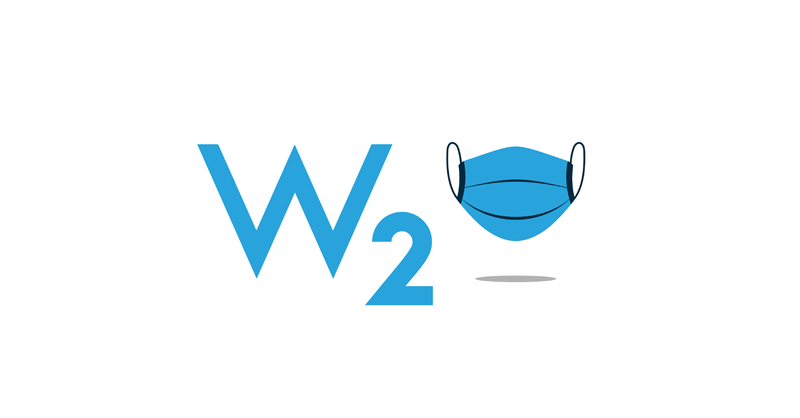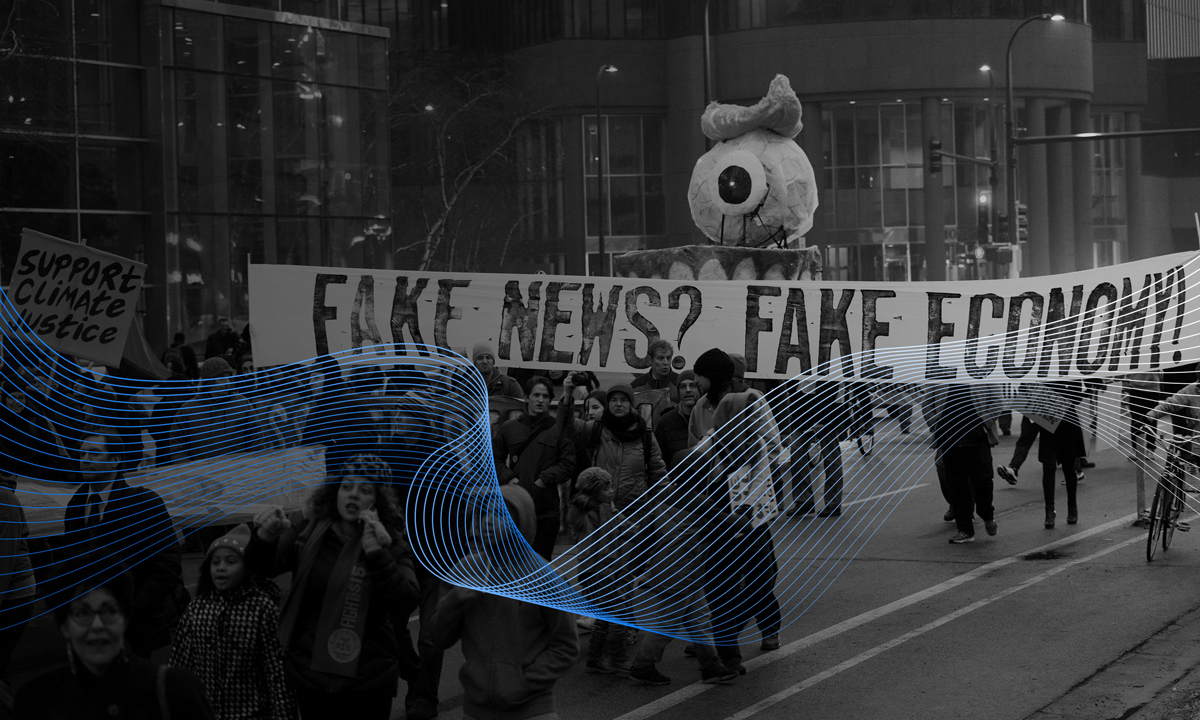
The New Standard for Brands: How Brands are Developing a Social Conscience
For decades, the job of public relations firms has been to maintain a healthy distance between a brand’s narrative and public controversy. Where potentially decisive political forces were at play, the stewards of a brand’s image labored to keep the two separate.
Now, however, brands are throwing out the playbook. These days, consumers are thirsty for an authenticity that dictates a certain degree of choice on the parts of brands and their caretakers. When something controversial and charged overruns a society, consumers look to brands to pick a side, to make their allegiances known.
This is a significant transition from the way things have worked in the past, so we sat down with Rachel Winer, president of Edelman Chicago, who has the inside track at what is motivating these changes and how it is affecting the business of public relations.
Chicago Ideas (CI): In this day and age, why is taking a stance on social matters important to your clients?
Rachel Winer (RW): Brands have always wanted to differentiate themselves. But doing so based on product benefits and price alone are no longer enough. Consumers are demanding more. Our recent Trust Barometer research shows that consumers are looking for leadership and CEOs to take the lead on change rather than waiting for government to impose it.
Nearly two-thirds of consumers are “belief-driven buyers,” people who believe their purchasing decisions convey agreement with the values and purpose of the brands they buy. That’s why it’s more important than ever that brands are out there in the world participating in meaningful ways to improve people’s lives.
When they do, consumers respond with their support and their purchasing power. Employees like it, too, and, importantly, so do potential employees. They say, “This company’s doing something good. I want to be a part of that.” In other words, taking a stand impacts the present and the future of an organization.
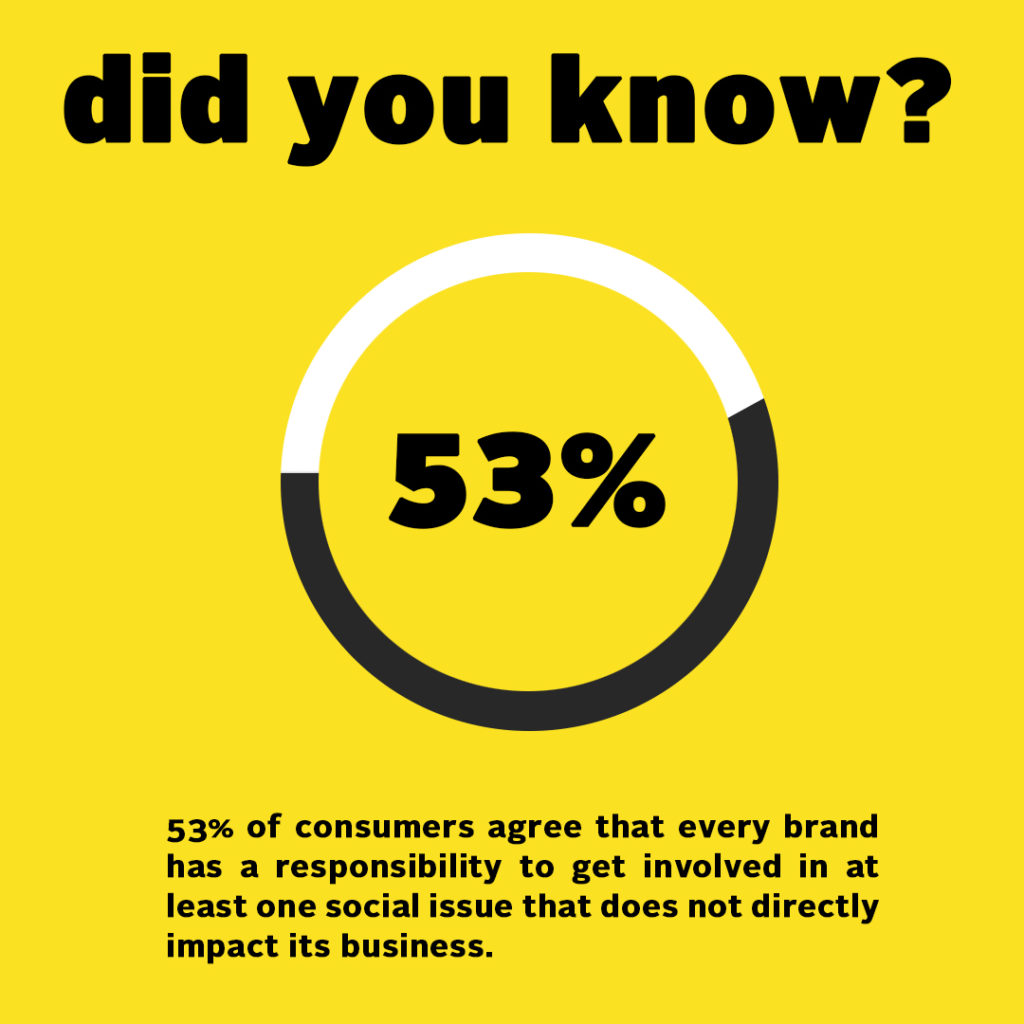
CI: Do you think consumers care about the particular issue a company takes or just that a company is taking a stand and seems socially active?
RW: They care about how a company makes good on its promises. Consumers are getting more sophisticated every day. They may not be familiar with the phrase “trust-washing,” but they know it when they see it. Trust-washing is when companies say what they think consumers want to hear, but don’t actually follow it up with action.
The Dove Men+Care* brand is a good example of the opposite – of following through on its beliefs. With only one out of five men in the U.S. offered paternity care, Dove Men+Care said that’s not good enough. And then it followed through with a $1 million commitment to fund dads and their families nationwide who don’t have access to paid paternity leave. That’s walking the walk, and people notice. You can shout from the rooftops, “This is important,” but what are you actually doing to back it up? Consumers are looking to brands to actually make a difference.
CI: What benefits have you seen from brands choosing to wade into the sometimes-turbulent waters of important social issues?
RW: Taking a stand does not have to be controversial. There are different ends of the spectrum. What’s important is that whatever issue or cause a brand engages with, that the engagement itself is authentic and sincere. It has to make sense for the brand, though it doesn’t have to be directly related to it. In fact, the Trust Barometer found that more than half of consumers think every brand has a responsibility to get involved in at least one social issue that does not directly impact its business.
Recently we’ve seen brands like Walmart and Dick’s Sporting Goods take a stand on guns. They’re saying, “We can no longer step aside and wait for somebody else to deal with this issue. This is too important of a topic or it hits too close to home for our own employees and customers.” Everyone may not agree with their actions, but the issue is important and resonant with those brands, and they believe what they’re doing makes sense for them.
An example of a brand taking a stand on what may be a less controversial topic yet still a very powerful and relevant one is the WNBA* Take a Seat, Take a Stand program that allows fans to support great organizations that promote growth and empowerment for women and girls. For every ticket purchased, fans can choose from one of six organizations to which the WNBA will donate $5. A donation is also made to send a young girl to a game in an effort to inspire her by the strength and leadership of the women of the WNBA.
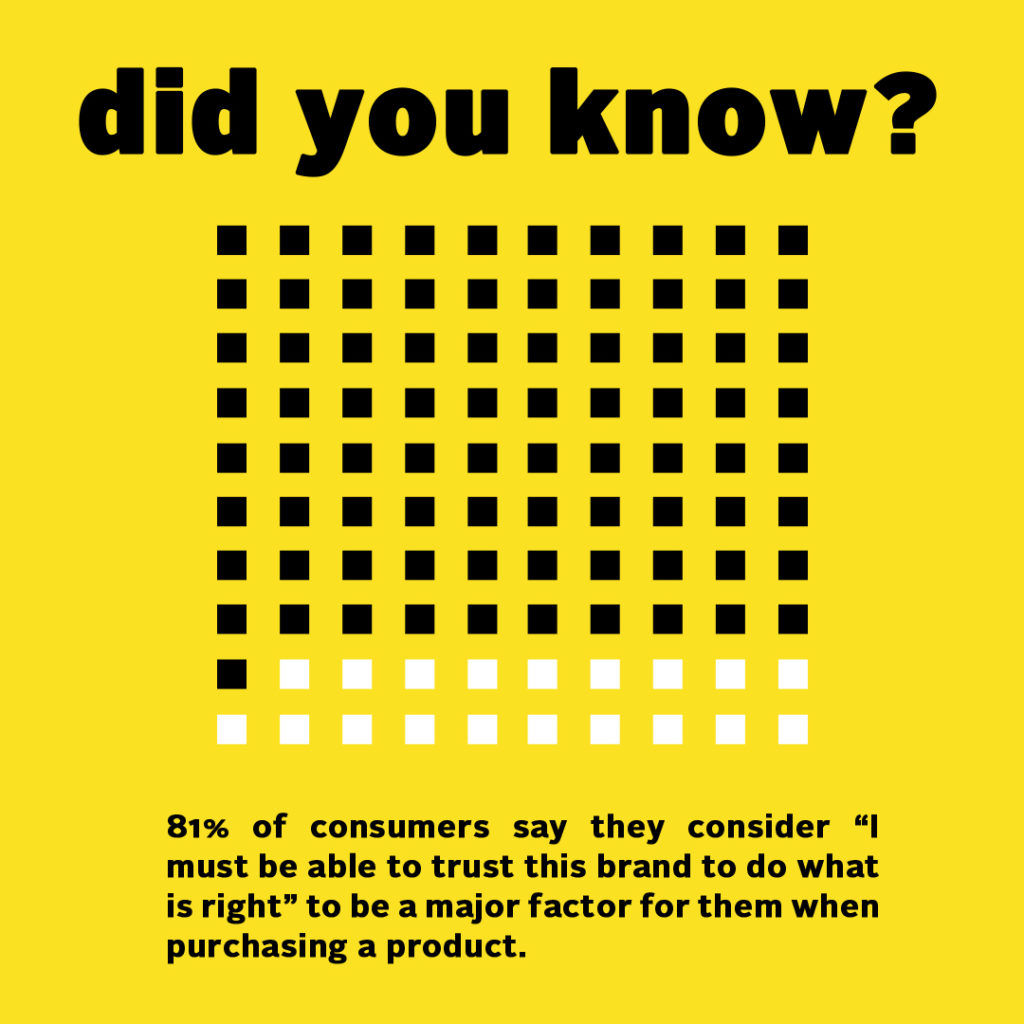
CI: Why do brands need a purpose beyond whatever functional benefits they provide?
RW: For many reasons. If people know you have a purpose, it suggests you stand for something. As I’ve said, that’s powerful when it’s authentic. A brand’s purpose ties into its values, its mission and vision, its way of conducting business, its integrity, and so much more. One of the lesser-discussed aspects of purpose is related to when brands find themselves in a crisis situation. If a brand that has a strong and sincere purpose – and thus a base of stakeholders it has strong relationships with – finds itself in a crisis situation, it will rebound more quickly from it.
CI: What role does trust play?
RW: Trust is crucial. Purpose, taking a stand on social issues – these and other efforts won’t make a difference to brands or consumers if there’s not trust behind them.
Everything I’ve been talking about here is tied to trust because part of earning trust is having an authentic purpose, one people can relate to and believe in. Trust and purpose aren’t mutually exclusive. As consumers, we’re more likely to trust companies when we know what they stand for and, when what they stand for is authentic, we are more likely to trust them. So it works both ways.
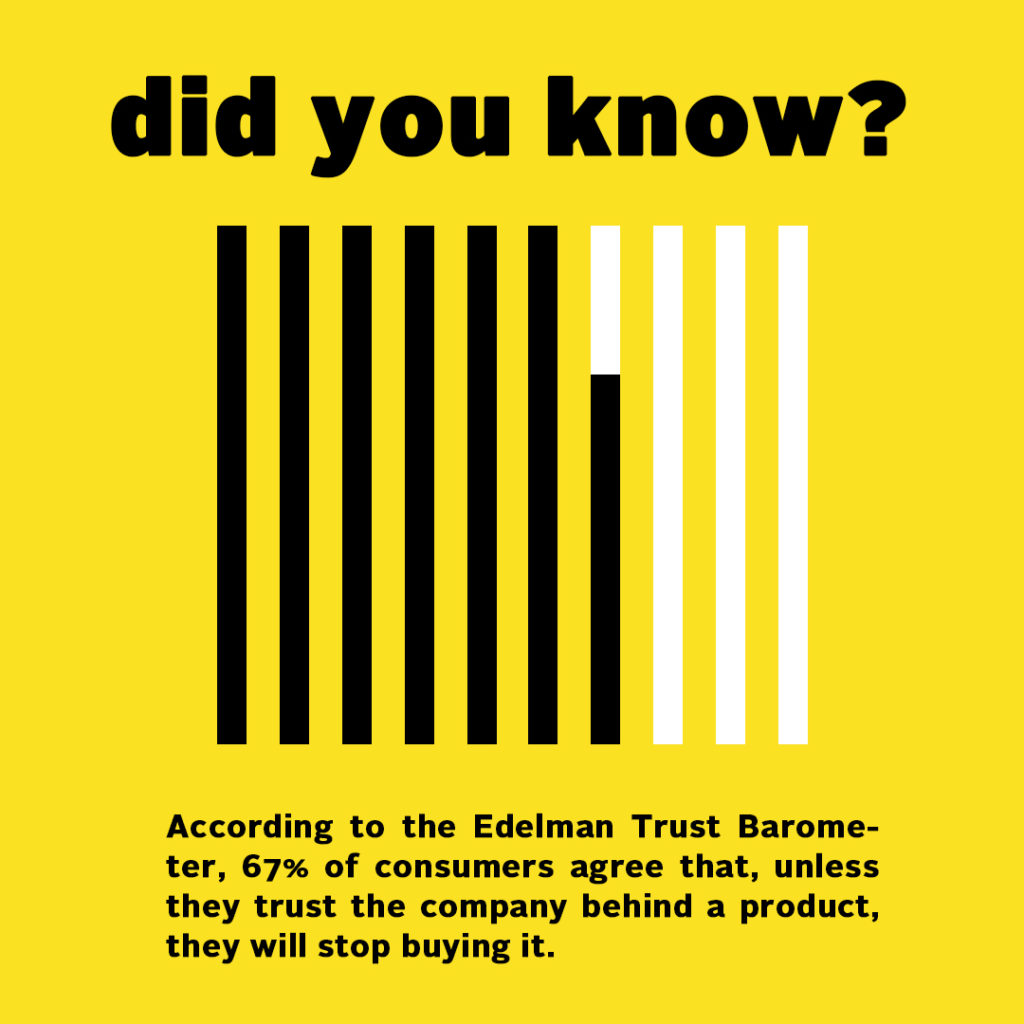
CI: How can consumers use their relationships with brands to positively impact the world around them? What action can they take to make a difference?
RW: Engage with brands that you think are genuinely striving to make a meaningful and positive difference in the world. In other words, if sustainability is important to you, buy from companies that, through their actions as much as through their words, are doing something about it. If LGBT issues are important to you, look up a brand’s nondiscrimination policies online. Sure, this takes some work. But if you are a “belief-buyer”—and increasingly more and more people are—then it will be worth it. Finally, peer-to-peer communication is one of the most effective channels for sharing a message. If there’s a cause or a brand you are passionate about, share that with your network and spread the word.


